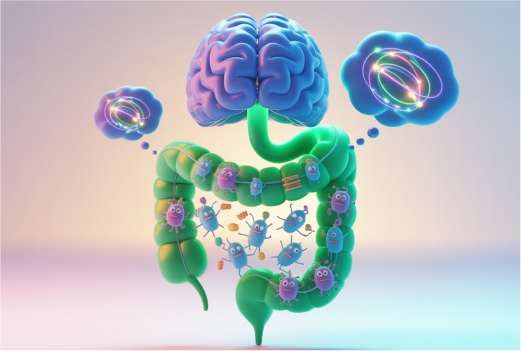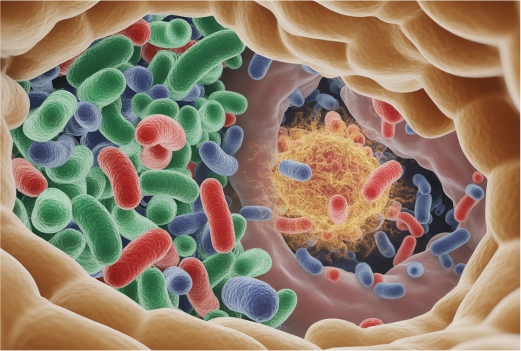

The Gut Microbiome: Your Body’s Essential “Second Brain”
The gut microbiome is a bustling community of trillions of microorganisms, including beneficial bacteria, fungi, and viruses, that live in your digestive tract. Increasingly recognized as a vital “organ” for whole-body wellness, it plays a crucial role far beyond simple digestion. A healthy and diverse gut microbiome is key to holistic health and is a cornerstone of nutritional genomics.Key Functions of a Healthy Gut Microbiome:
- Digestion and Nutrient Synthesis: These microbes are essential for breaking down complex food components like dietary fiber that your body can’t process on its own. In doing so, they produce important compounds like short-chain fatty acids (SCFAs), which provide energy to your gut cells and have anti-inflammatory effects.
- Immune System Regulation: A significant portion of your immune system resides in your gut. The microbiome helps “train” and regulate immune cells, teaching them to differentiate between harmless food particles and harmful pathogens. An imbalance can lead to chronic inflammation, allergies, and autoimmune conditions.
- The Gut-Brain Axis Connection: The gut and brain are in constant communication via the gut-brain axis. Your microbiome influences the production of neurotransmitters like serotonin, a key regulator of mood. This fascinating connection is a hot topic in mental wellness and research into conditions such as anxiety and depression.
- Maintaining Balance and Preventing Dysbiosis: A thriving microbiome is diverse and stable. When this balance is disrupted, a state known as dysbiosis, it can negatively impact your health. Common triggers include stress, a poor diet, and antibiotics. Maintaining gut health is a proactive step toward preventing issues like obesity, metabolic disorders, and inflammatory bowel disease.

